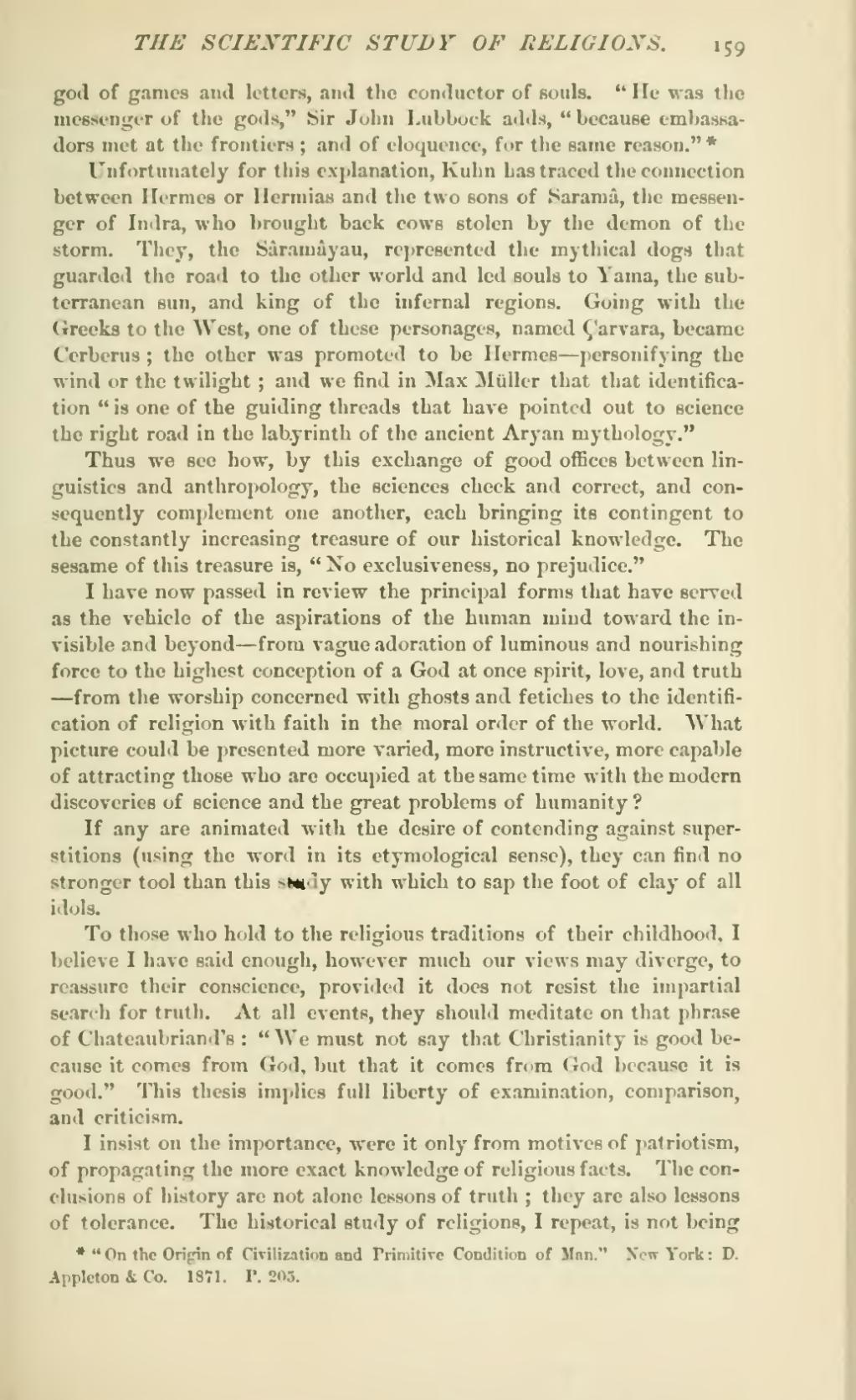god of games and letters, and the conductor of souls, "He was the messenger of the gods," Sir John Lubbock adds, "because embassadors met at the frontiers; and of eloquence, for the same reason."[1]
Unfortunately for this explanation, Kuhn has traced the connection between Hermes or Hermias and the two sons of Saramâ, the messenger of Indra, who brought back cows stolen by the demon of the storm. They, the Sâramâyau, represented the mythical dogs that guarded the road to the other world and led souls to Yama, the subterranean sun, and king of the infernal regions. Going with the Greeks to the West, one of these personages, named Çarvara, became Cerberus; the other was promoted to be Hermes—personifying the wind or the twilight; and we find in Max Müller that that identification "is one of the guiding threads that have pointed out to science the right road in the labyrinth of the ancient Aryan mythology."
Thus we see how, by this exchange of good offices between linguistics and anthropology, the sciences check and correct, and consequently complement one another, each bringing its contingent to the constantly increasing treasure of our historical knowledge. The sesame of this treasure is, "No exclusiveness, no prejudice."
I have now passed in review the principal forms that have served as the vehicle of the aspirations of the human mind toward the invisible and beyond—from vague adoration of luminous and nourishing force to the highest conception of a God at once spirit, love, and truth—from the worship concerned with ghosts and fetiches to the identification of religion with faith in the moral order of the world. What picture could be presented more varied, more instructive, more capable of attracting those who are occupied at the same time with the modern discoveries of science and the great problems of humanity?
If any are animated with the desire of contending against superstitions (using the word in its etymological sense), they can find no stronger tool than this study with which to sap the foot of clay of all idols.
To those who hold to the religious traditions of their childhood, I believe I have said enough, however much our views may diverge, to reassure their conscience, provided it does not resist the impartial search for truth. At all events, they should meditate on that phrase of Chateaubriand's: "We must not say that Christianity is good because it comes from God, but that it comes from God because it is good." This thesis implies full liberty of examination, comparison, and criticism.
I insist on the importance, were it only from motives of patriotism, of propagating the more exact knowledge of religious facts. The conclusions of history are not alone lessons of truth; they are also lessons of tolerance. The historical study of religions, I repeat, is not being
- ↑ "On the Origin of Civilization and Primitive Condition of Man." New York: D. Appleton & Co. 1871. P. 205.

